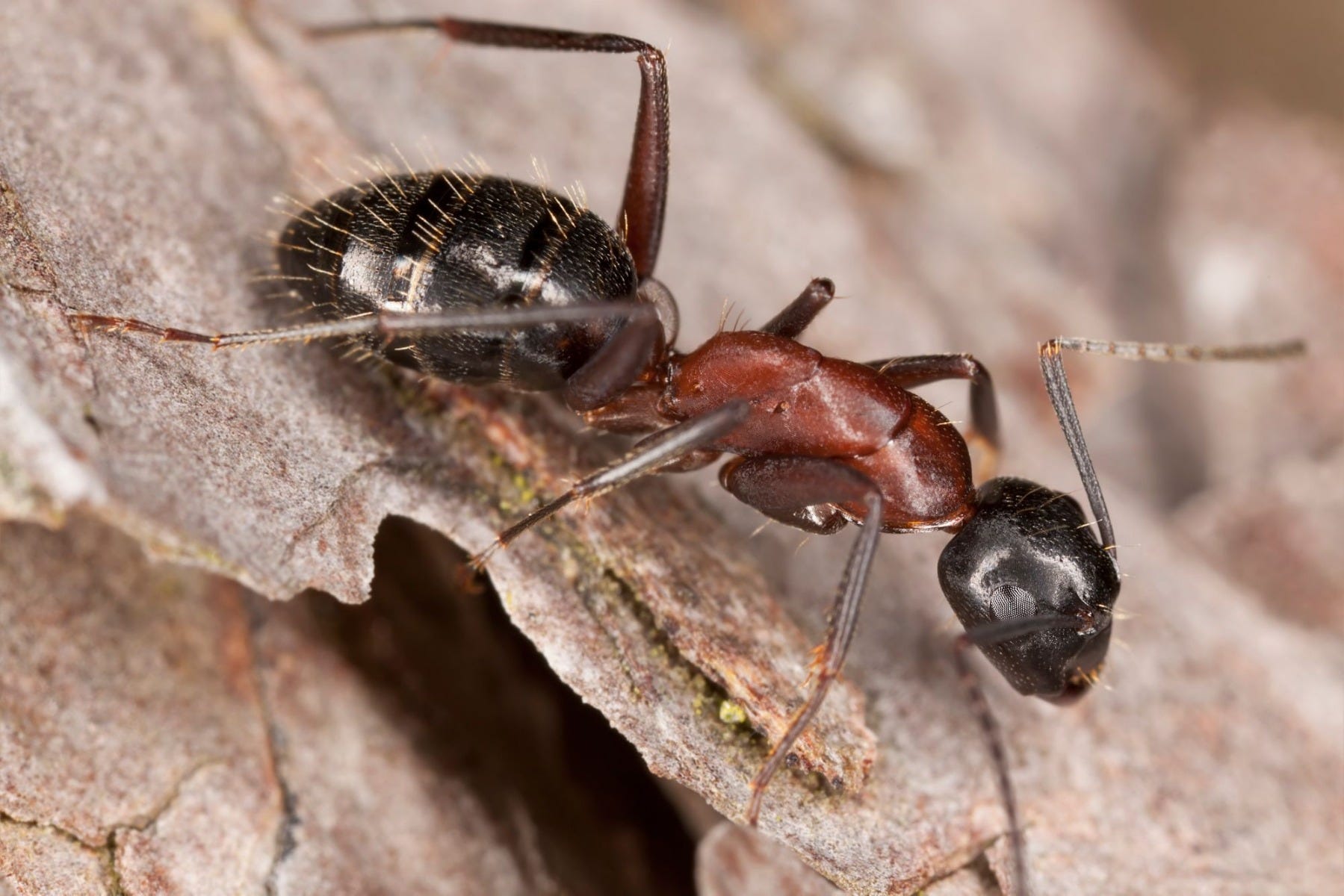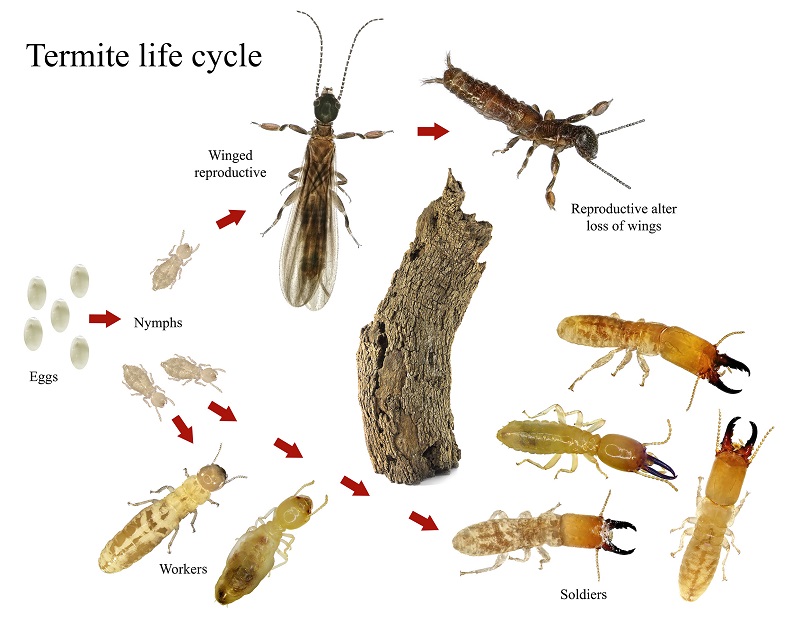Ecological Effect of Insect Control: Harmonizing Effectiveness With Sustainability
The ecological influence of pest control is an essential issue that needs a fragile equilibrium between achieving efficiency in taking care of bugs and guaranteeing sustainability of our environments. From the use of unsafe chemicals that permeate into our soil and water to the unintended repercussions on non-target types, the consequences of traditional bug control practices are significant.
Dangerous Chemicals in Parasite Control
The application of unsafe chemicals in parasite control poses considerable ecological and health and wellness dangers that call for cautious factor to consider and reduction approaches. Insecticides, herbicides, and pesticides are commonly used to eliminate insects, yet their widespread application can bring about unintended consequences. These chemicals can infect dirt, water resources, and the air, influencing not only the targeted insects yet additionally beneficial insects, wildlife, and human beings.

To deal with these risks, integrated pest management (IPM) strategies are being advertised as an extra sustainable choice. IPM involves a mix of approaches such as organic control, habitat control, and the targeted use pesticides as a last resource (ant control kannapolis nc). By adopting a holistic approach to pest control, we can decrease the ecological and health influences connected with dangerous chemicals while efficiently managing pest populaces
Effect On Non-Target Species
Taking into consideration the unexpected effects of parasite control techniques, the influence on non-target types is a vital facet that needs extensive assessment. While bug control procedures aim to target details insects, various other organisms in the ecosystem may be accidentally impacted. Non-target varieties, including beneficial bugs, birds, creatures, and even plants, can experience direct or indirect injury from pesticide applications or biological control approaches.
Pesticides can have sub-lethal or dangerous effects on non-target types. For instance, insecticides made to fight a certain insect bug might harm pollinators like bees or all-natural killers such as ladybugs. Additionally, chemical residues can collect in the atmosphere, affecting non-target organisms gradually. Organic control representatives, if not species-specific, can position dangers to unexpected targets, interfering with the eco-friendly equilibrium.
To alleviate the effect on non-target types, incorporated parasite monitoring (IPM) approaches that stress an all natural technique to pest control are suggested. These methods prioritize using environmentally friendly techniques, decreasing damage to beneficial organisms while effectively taking care of pest populaces. Carrying out comprehensive danger evaluations and checking the results of insect control efforts are crucial steps in protecting non-target species and advertising general ecosystem wellness.
Dirt and Water Contamination
Unplanned environmental consequences of parasite control techniques expand beyond affecting non-target species, with considerable effects for soil and water contamination - termite control services. Pesticides, herbicides, and chemical fertilizers used in bug control can seep into the soil and pollute groundwater, presenting a risk to both earthbound and marine ecological communities.
Water contamination is another critical issue related to bug control techniques. Overflow from agricultural areas treated with chemicals can lug these chemicals right into neighboring water bodies, influencing aquatic organisms and water high quality. Impurities in water resources can have far-ranging effects, influencing not just aquatic life but also human health through the intake of contaminated water or marine organisms. To reduce dirt and water contamination from pest control activities, integrated pest administration approaches that focus on sustainability and lessen chemical inputs are crucial.
Air Air Pollution From Chemical Usage
Exposure to air-borne chemicals during farming applications presents a considerable issue for air contamination control procedures. When pesticides are sprayed onto plants, they can volatilize right into the air and form volatile natural compounds (VOCs) and various other air-borne contaminants. These chemicals can add to the formation of ground-level ozone, a significant element of smog that can have detrimental results on human wellness, crop performance, and general air quality. Furthermore, pesticide drift, where pesticides are lugged by the wind to unexpected areas, can bring about the contamination of close-by ecosystems and water bodies.

Methods for Lasting Parasite Control
In the realm of agricultural practices, applying sustainable insect control methods is extremely important for keeping ecological balance and protecting crop yields. Sustainable insect control highlights the use of eco-friendly methods to handle bug populaces properly while minimizing harm to non-target organisms and ecosystems. Integrated Pest Management (IPM) is a widely adopted technique that integrates biological, cultural, physical, and chemical control methods to achieve long-term pest monitoring remedies.
Crop rotation and diversity are additionally efficient techniques to disrupt pest life cycles and develop less beneficial conditions for parasites to flourish. Inevitably, by incorporating these sustainable parasite control techniques, farmers can attain a balance in between pest management efficiency and ecological stewardship.
Verdict
Finally, the environmental influence of insect control approaches should be carefully thought about to stabilize effectiveness with sustainability. Unsafe chemicals used in bug control can lead to soil and water contamination, air contamination, and injury non-target species - termite control. It is crucial to execute lasting bug control methods to minimize these adverse effects on the environment and promote a healthier community for future generations
By embracing an all natural strategy to pest control, we can minimize the environmental and health effects connected with harmful chemicals while efficiently handling pest populations.

To reduce the air contamination caused by chemical usage, it is vital to adopt integrated insect management strategies that prioritize the usage of non-chemical pest control techniques, such as plant rotation, all-natural predators, and resistant plant varieties. Sustainable bug control emphasizes the use of eco friendly techniques to handle insect populaces properly while reducing injury to non-target organisms and ecological communities. Integrated Insect Administration (IPM) is a commonly adopted method that integrates organic, social, physical, and chemical control approaches to achieve long-term insect management options.
Comments on “Professional Termite Control Services: Guard Your Home from Termite Damage”